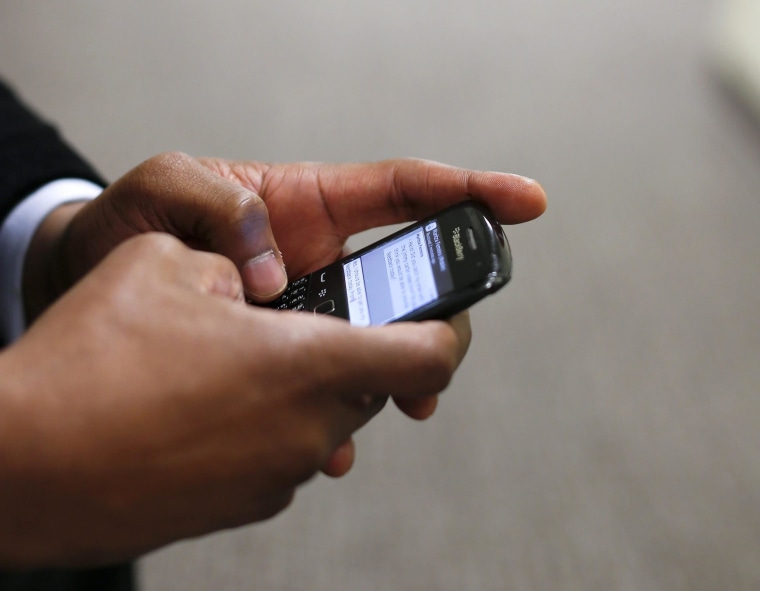MAINZ, Germany – Imagine life without the buzz of a smartphone signaling yet another business email after leaving the office.
German employees could soon have legal protection preventing them from dealing with work-related phone calls and email traffic after hours and on weekends.
Labor Minister Andrea Nahles is contemplating introducing "anti-stress" regulations in Europe's economic powerhouse.
She told the Rheinische Post newspaper that it is "indisputable that there is a connection between permanent availability and psychological diseases." Government officials are collecting data as part of a push to draft a proposal for lawmakers next year.
Some German companies have already taken voluntary measures.
Volkswagen has capped after-work email for some employees who have been issued company-owned smartphones. For workers under wage agreements, the company’s email server is programmed to stop delivering messages between 6:15 p.m. and 7 a.m. the following morning. Weekends are also off-limits.
“Supervisors and employees regard the regulation as a signal to respect recreation times and to interrupt after-work hours only in emergencies,” Volkswagen spokesman Markus Schlesag told NBC News.
German union officials say that the discussion about after-work emails illustrates a broader problem.
“We see a strong increase of time pressure, multi-tasking requirements and high performance standards,” said Ingo Nuernberger of Germany's DGB confederation of unions. “And more and more people take work home.”
A recent poll by Germany’s Forsa institute — commissioned by health insurer DAK — found that 52 percent of those polled backed "anti-stress" laws. And seven-in-ten agreed that pressure from emails and calls outside work hours had increased significantly.
"Good and healthy work that can be maintained for a long time is a competitive advantage"
Other senior members of Nahles’ Social Democrat party — which are partners in German leader Angela Merkel’s coalition government — highlighted threats in today’s work environment, which come along with the use of modern means of communication. “We need to supplement the work protection regulations with special measures to minimize stress,” said Guntram Schneider, the labor minister of Germany’s Northrhein-Westphalia state.
German workers already enjoy a social model which is often praised by other nations, but also criticized for its high costs.
By law, every worker in Germany gets at least four weeks of paid vacation. Employees on average enjoy a 35-hour work week and women are entitled to 14 weeks of paid maternity leave.
Nuernberger argued that Germany’s booming economy proves that broad legal protections enjoyed by the workforce do not lead to a decline in competitiveness.
“We clearly have a higher work protection standards compared to the United States, but in regard to competitiveness we are at least on a face-to-face level with the Americans,” Nuernberger said. "Good and healthy work that can be maintained for a long time is a competitive advantage."
